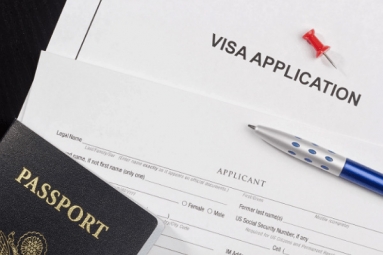
(Image source from: Economictimes.indiatimes.com)
Indian nationals can now benefit from a new visa system introduced by the European Union (EU), known as the "cascade" regime. Under this system, Indian citizens are eligible to receive long-term, multi-entry Schengen visas that are valid for a period of two years. This is a significant improvement compared to the previous visas, which had shorter validity periods. To be eligible for the two-year visa, applicants must have previously obtained and lawfully used two Schengen visas within the past three years. Upon successfully utilizing the two-year visa, Indian travelers can expect to receive a five-year Schengen visa, provided that their passport has enough remaining validity. Holding a valid two-year or five-year visa grants Indian citizens the same travel rights within the Schengen area as visa-free nationals. This means that they can freely travel within the member countries for short stays, typically up to 90 days in any 180-day period, without requiring additional permits.
According to the statement, the initial two-year visa is usually followed by a five-year visa, depending on the remaining validity of the passport. Throughout the duration of these visas, holders enjoy the same travel privileges as visa-exempt nationals. The "cascade" system is designed to reward frequent travelers by gradually increasing the length of their visas. Upon successful utilization, the visa grants you the potential to be eligible for a visa lasting five years. Within the Schengen visa, individuals are granted the freedom to explore the Schengen area, allowing for short stays of up to 90 days within a 180-day period. Although these visas are not limited to a specific purpose, they do not grant the right to work.
The Schengen area consists of 29 European countries, including 25 member states of the European Union: Belgium, Bulgaria, Croatia, Czech Republic, Denmark, Germany, Estonia, Greece, Spain, France, Italy, Latvia, Lithuania, Luxembourg, Hungary, Malta, Netherlands, Austria, Poland, Portugal, Romania, Slovenia, Slovakia, Finland, and Sweden. It also includes Iceland, Liechtenstein, Norway, and Switzerland. This decision is made in the context of strengthening relations under the EU-India Common Agenda on Migration and Mobility, which aims for comprehensive cooperation on migration policy between the EU and India. The facilitation of people-to-people contacts is a crucial aspect due to India's importance as an EU partner.
On April 18, 2024, the European Commission implemented specific regulations for issuing multiple-entry visas to Indian nationals, which are more advantageous compared to the previous standard rules of the Visa Code. Travellers in India will now have easier access to visas that are valid for multiple years, as long as their passport allows it. This new policy is especially beneficial for those who frequently journey to and from India.











